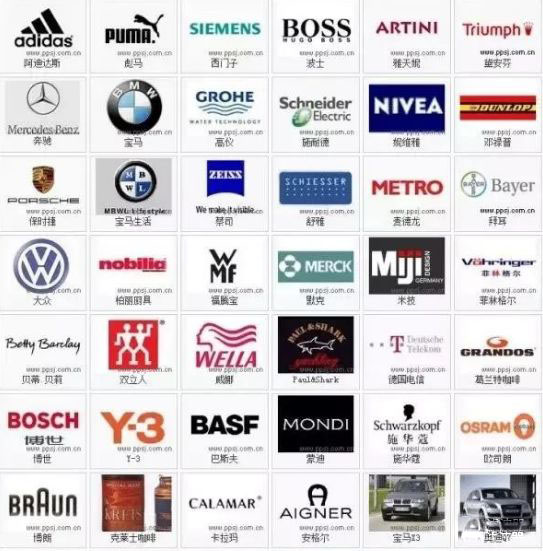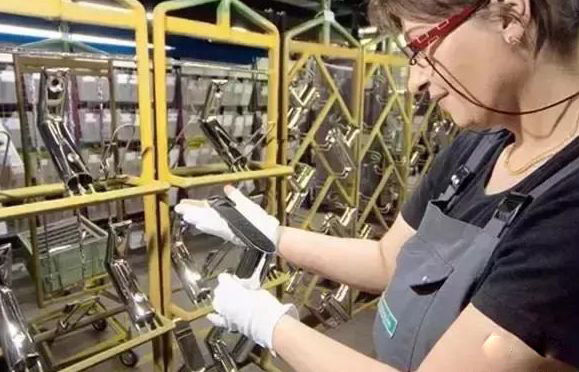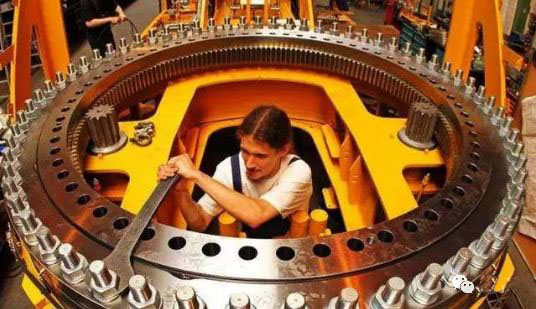Germany has a population of only 80 million people, lower than Jiangsu Province, China, but why are there so many world-famous brands from Germany?

In Germany, no enterprise has become rich overnight and quickly become the focus of the world. They are often “small companies” and “slow companies” focusing on a certain field and a certain product, but there are few “bad companies” and no “fake companies”
The German nation began industrialization very late. When Britain and France completed the industrial revolution, Germany was still an agricultural country. After entering industrialization, the Germans also went through a “cottage stage” similar to today’s China: learning from Britain and France, stealing other people’s technology and imitating other people’s products.
To this end, the British Parliament also passed an amendment to the Trademark Law on August 23, 1887, requiring all German imports entering the British mainland and colonial markets to indicate “Made in Germany”. “Made in Germany” was actually an insulting symbol at that time.

At the beginning of Germany’s industrialization era, the scientific research of universities was completely disconnected from the field of production. Although the “world science center” was in Germany at that time, Americans were very smart. After they got their degree in Germany and returned home, they did not blindly go to colleges and universities to do research work but went into the market to set up enterprises.
In the early 1990s, German scientists came to the United States and found that the scientific and technological gold content of American industrial products was the highest. Only then did they clearly put forward the policy of “combining theory with practice” and began to vigorously promote the development of Applied Science.
Because Germany has a strong foundation in basic science, it soon established the connection between scientific theory and industrial practice, thus combining a world-class team of scientists, engineers, and skilled workers in half a century, leading the “internal combustion engine and electrification revolution” and making the German industrial economy develop by leaps and bounds.
Since then, Germany’s machinery, chemical industry, electrical appliances, optics, kitchen utensils, and sporting goods have become the best quality products in the world, “made in Germany” has become synonymous with quality and reputation. Almost all the most famous companies in Germany grew up in that era. They have maintained a worldwide reputation to this day.
Cherish the “name behind you” and not be greedy for “immediate benefits”
Germany is not a nation that likes the new and hates the old. Germans like things with experience, historical memory and cultural memory. I know a German professor who still has an electronic tube radio as big as a wooden box produced in the 1960s. Because of its good quality, it is still in use. I asked him, “do you still use such an old thing?” He said, “yes, as soon as I see it, I think of the story that happened next to the radio when I was young. For me, it is more precious than anything!”
The ballpoint pen produced by Germany fell to the ground more than 10 times and can still be used when picked up. The residential houses built in Germany will not fall down in 120 years. Even if they are destroyed by the war, the Germans must rebuild them as they are.
There is a picture of German buildings, called “unchanged Germany”, showing the houses built by Germans after World War II, which is completely in the style of the late medieval Baroque era and Rococo Era. Why? After World War II, almost all cities in Germany were in ruins, and those ancient houses were basically destroyed by the war. Germans are very distressed because Germans just like their own culture.
What should I do? The Germans have to find out the photos of that year and the design drawings of that year. They must rebuild them one by one as they are. Today, you go to Germany to see that most cities have no modern buildings, almost all of which are in the style of Baroque and Rococo times.
Germany has a Royal Opera House, which was completely destroyed by American planes in World War II. The Germans are very distressed. It took 200 years to build the opera house, but it was destroyed.
What should I do? After World War II, the Germans surrounded the ruins and engaged a group of scientists, cultural scientists, archaeologists, architects and technical workers, hundreds of people. It took 35 years to reinstall the pile of broken bricks and tiles. If you look at the king’s opera house now, you can’t see that it was rebuilt after the bomb exploded. The building has become a “world cultural heritage”.
UNESCO said, “this action itself belongs to the world cultural heritage”. It is precise because Germany loves and respects its own culture to such an extent that it is called “constant Germany”.
Because Germany’s economic development does not depend on the real estate market, it is difficult for a German architect to get a construction project. If he finally wins the bid, he will design it carefully. He must make it a fine art and make it immortal. Therefore, in Germany, you will never see two buildings that will be the same. Therefore, it is said that German architects pay attention not to “immediate benefit”, but to “name behind”.
One person only does business once
At a press conference, a foreign reporter asked Peter von Siemens: “why are there more than 2300 world-famous brands in Germany with a population of 80 million?” The president of Siemens replied: “it depends on our German working attitude and attention to every production technical detail. Our German enterprise employees undertake the obligation to produce first-class products and provide good after-sales service.”
At that time, the reporter asked him, “isn’t the ultimate goal of the enterprise the maximization of profits? Whatever its obligations?” The president of Siemens replied, “no, that’s British and American economics. We Germans have our own economics. German economics pursues two points:
1、 Harmony and safety of production process;
2、 Practicability of high-tech products.
This is the soul of the enterprise, not the maximization of profits. The operation of enterprises is not only for economic interests. In fact, it is the inherent duty and obligation of our German enterprises to abide by corporate ethics and strive for excellence in manufacturing products! ” Speaking of “vocation”, what does “vocation” mean? It’s “what God wants you to do”.
In Germany, no enterprise has become rich overnight and quickly become the focus of the world. They are often “small companies” and “slow companies” focusing on a certain field and a certain product, but there are few “bad companies” and no “fake companies”. Most of them are world-famous companies with more than 100 years of experience and attach great importance to product quality and value, also known as “invisible champions”. There is a wine workshop in Germany. It has been nearly 400 years.
It was left by chance in World War II. Fortunately, it was not bombed by an American plane. Germany’s horse brand tire company was established in 1871. Now almost every prefecture level city in China has its branches. Adidas in Germany was founded in 1920 and has a history of more than 94 years. As you can see, such enterprises in Germany are old.
German products do not fight a price war and do not compete with their peers.
First, they are protected by the industry. Second, because price does not determine everything, fighting a price war may plunge the whole industry into a vicious circle.
German enterprises want to pursue profits, but as long as they can ensure basic profits and make money, Germans are not so greedy and have endless pursuit of profits but should consider longer-term and sustainable development. Therefore, the Germans prefer to “ensure the basic profits while transforming part of the profits into higher quality products and better services”.
I once talked to the manager of a fisher pot shop in Berlin, I said: “Your German-made pot can last 100 years, so every time you sell it, you actually lose a customer, and people won’t have to look for you in the future. Look at the Japanese-made pot, it will end in 20 years, and customers have to look for him again every 20 years. Think about it carefully, are you worth it? Why do you want to make things so strong? If you shorten its service life, you can make more money? ”
The manager replied to me: “If you don’t have to buy our pot for the second time, it will have a good reputation and attract more people to buy our pot. We’re too busy now! Our kitchen factory changed its production from the former Arsenal after World War II, and sold more than 100 million pots in just a few decades. Do you know how many people there are in the world? It’s almost 8 billion, and there’s a big market with a population of more than 7 billion The field is waiting for us! ”
You see, Germans have different ideas, and their marketing strategies are also different. A business is done once in your life. If you say his things are good, it will infect another person. This person will be his customer and then infect the third person. What others do is this.

Explore the essence and consider the long term
Today, only three cities in Germany, namely Berlin, Hamburg and Frankfurt, are designated as “international cities”. Later, they will also be declared as “undefended cities” after fighting. Other cities are small and medium-sized cities. The vast majority of Germans live in cities with 50000, 100000, 150000 and 200000 people. Even in cities with a population of 500000, Germans feel too big. Almost all the sights of German cities have this feature: the highest part of the urban skyline must be the spire of the church, and no building can surpass it.
I once talked to a German professor about this question: why can Germans be punctual? He said: “If a city is small, it is easy to be punctual. In order to be punctual, it must also be designed to be smaller. If you want to avoid traffic jams in the city in the ‘era of automobile popularization’, there are two conditions. The first condition is that any building should not exceed five floors. In Germany, if you want to build a building with more than six floors, you must pass the vote of Parliament. The second condition is that half of the space in any city must be roads. As long as you simultaneously If we do these two things, the city will not be in traffic jams. ”
Today, Germans generally only build high-rise buildings in Berlin, Hamburg and frank Fujian, which are also world-class high-rise buildings, but there is one condition: when such high-rise buildings fall down from any direction, they can’t press onto another building. Therefore, the higher the building, the larger the open space left around. This is called “exploring the essence of things and determining the long-term strategy”. When Germans build a house, they must consider what will happen when it falls down.
Germany does not believe in good quality and low price
The advantage of “made in Germany” is not in price. Even the Germans themselves admit that “German goods are good in quality and cheap in price”. You can talk about the price with the Japanese, but you can’t cut down a knife when you talk about the price with the Germans. The Germans don’t even admit that there is such a thing as “high quality and low price”. The advantage of “made in Germany” lies in its quality, its proprietary technology to solve problems and its excellent after-sales service.
The general products developed by German enterprises are products with world-leading level and high difficulty that cannot be manufactured by other countries for the time being. More than 30% of Germany’s exports are exclusive products without competitors in the international market. The industrial products produced by Germany, ranging from the tunnel boring machine for digging the subway to the stapler in secretarial work, are the first in the world in terms of quality.
All products for children under 3 years old in Germany shall not contain any artificial additives and must be natural; All milk powder is listed as drug supervision; All maternal and infant products are only allowed to be sold in pharmacies, not in supermarkets; All chocolates are required to use natural cocoa butter as raw material for processing and production; All health care and skincare brands must have their own laboratories and botanical plantations to ensure that they are derived from natural organic quality.
In addition to the efficacy of cleaning and sterilization, the vast majority of non-industrial chemical products produced by Germany, such as detergents, hand sanitizers, and detergents, adopt Biodegradation Technology, that is, rely on microorganisms to decompose the chemical components to minimize the harm of chemistry to the human body. The filter kettle produced by Germany can filter both inorganic and organic harmful substances and is rich in magnesium. The water filtered by the German kettle is slightly sweet.
German pot has natural antibacterial and high-temperature resistance, which can save energy and environmental protection, and has excellent heat conduction effect. People say, “with this German pot, one candle can make a delicious meal.” A German pot can last 100 years, so many Germans use the pot handed down by their grandmother. For Germans, you only need to buy any kitchen utensils once in your life, not twice, because you can’t use them all your life.
The pot for stewing soup produced by Germany is completely made of steel. It is so heavy that even men can’t hold it. There are strange patterns on the inner side of the pot cover. I asked a German seller, “Why are these patterns?” “After it is covered, the water vapor can circulate up and down naturally, which is not easy to burn dry. This is a technology,” he said Germany’s cooking utensils are tightly fitted on the cover. It is said that you can boil in three minutes, which can save you a lot of gas bills.
I once asked a German entrepreneur why German products can be used for 100 years? He replied: “there are two reasons for this. One reason is that Germany has no resources and almost all important industrial raw materials are imported from abroad, so we must make the best use of everything and prolong the service life as far as possible, which is the biggest saving of raw materials. Another reason is that we Germans believe that the quality of products is mainly reflected in whether they are ‘durable’.”
